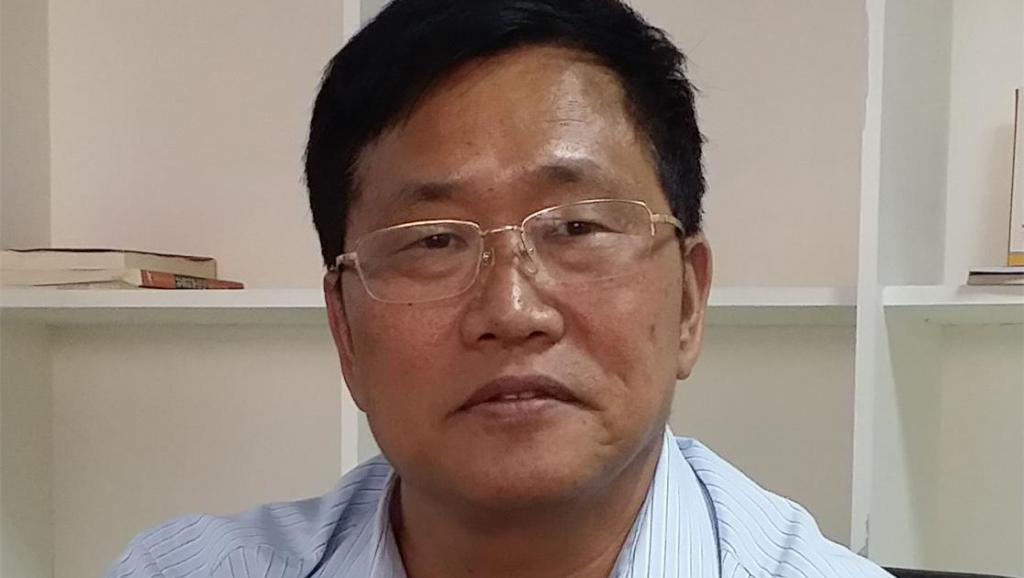Over a year after the “Black Friday” crackdown on rights lawyers and activists, four of those detained stood trial earlier this month, receiving sentences of up to 7.5 years in prison. All four of the defendants tried in the first round—Zhai Yanmin, Gou Hongguo, Hu Shigen, and Zhou Shifeng—pled guilty. Their pleas, however, are widely believed to have been coerced by authorities, and contained language highly similar to a parallel propaganda campaign lashing out at “foreign hostile forces” for training the activists in order to foment a “color revolution” in China. At the South China Morning Post Jun Mai notes that official court transcripts and state media coverage did not accurately or fully reflect what the defendants said in the courtroom:
In a 10-minute final statement, the Peking University law school master’s degree holder [Zhou Shifeng] praised China’s legal system, saying it was “so much beyond the Western rule of law”, and that the trial would “stand the test of the world”.
The praise was not included in the official transcript published hours later. His speech was condensed into a few paragraphs, in which he pleaded guilty and thanked the court for its fairness.
[…] “The trial fully represents the fairness of a socialist legal system with Chinese characteristics,” Zhou said after the verdict.
It was unclear if Zhou was being sarcastic or genuine, and the same confusion hung over two interviews arranged by the authorities later that day. Former colleague Huang Liqun was one of two interviewees designated to speak to the media.
[…] After the trial of activist Hu Shigen, a court summary turned Hu’s reference to “thoughts of Western democracy” into simply “reactionary thoughts”.
A slight change was also made to Hu’s statement about China’s transition to a democracy. The public transcript quoted him as saying: “Once bloodshed breaks out between the government and the people, it will create a chance for international intervention.”
But it omitted the start of Hu’s sentence in court: “We don’t want bloodshed to happen, but …” [Source]
Authorities have increasingly relied on the tactic of promoting, and often televising, confessions that many believe to have been made under duress. Prior to the latest trials, rights lawyer Wang Yu was reportedly released after Hong Kong’s Phoenix Television aired a confession-style interview with her, but has not yet been confirmed to be free. An editorial from The Yomiuri Shimbun warns that so-called “confessions” are being widely publicized in order to suppress dissent, and ties the tactic to other efforts by the Xi administration to crack down on free expression, attack western values and foreign NGOs, and bolster Party rule under the banner of rule of law:
Authorities may believe that having open court proceedings will more effectively discourage lawyers and others from opposing the regime than holding such trials behind the scenes as they normally do.
It is inevitable to believe that law-enforcement authorities have forced the lawyer and others to make a confession in exchange for having their punishments commuted or the surveillance of their family members lifted. Although China, a country with one-party rule, advocates the rule of law, the country does not have an independent judiciary. The rule of law is used only as a tool for the regime to rule the country.
[…] China’s intensification of its control over the freedom of speech is serious.
[…] The Xi administration has also established a law intended to control foreign nongovernmental organizations operating in China. Aimed at preventing such values as human rights and democracy from spreading in Chinese society, the new law will be enforced next January. The law is likely to be used to crack down on activists. [Source]
More activists and lawyers detained last July are expected to stand trial soon, including prominent rights lawyer Li Heping. China Change has translated a recently published interview that artist and activist Ai Weiwei conducted with the lawyer in 2010. In their intro to the translation, China Change commented that “if the spectacle of the four show trials in early August is any indication, the entire 709 crackdown is spurred by unfounded fears and is a mockery of the rule of law.” Read more about the “Great Subversion Case” in a recent essay by Mo Zhixu, translated by CDT.








